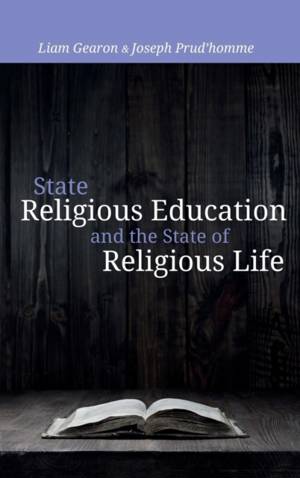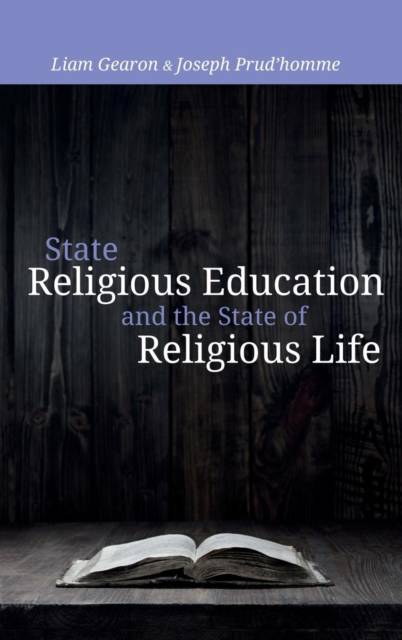
- Retrait gratuit dans votre magasin Club
- 7.000.000 titres dans notre catalogue
- Payer en toute sécurité
- Toujours un magasin près de chez vous
- Retrait gratuit dans votre magasin Club
- 7.000.0000 titres dans notre catalogue
- Payer en toute sécurité
- Toujours un magasin près de chez vous
State Religious Education and the State of Religious Life
Liam Gearon, Joseph Prud'homme
Livre relié | Anglais
70,95 €
+ 141 points
Format
Description
This book explores recent calls to increase instruction of the Bible in American public schools. The work develops a distinctive philosophical and trans-Atlantic assessment of these proposals by critiquing European approaches to religious education and by reviewing the role of religion in contemporary democracies. The work will spark debate among political scientists, policy experts, Religious Education instructors, theologians, and social and educational theorists.
Spécifications
Parties prenantes
- Auteur(s) :
- Editeur:
Contenu
- Nombre de pages :
- 218
- Langue:
- Anglais
Caractéristiques
- EAN:
- 9781498287760
- Date de parution :
- 04-04-18
- Format:
- Livre relié
- Format numérique:
- Genaaid
- Dimensions :
- 152 mm x 229 mm
- Poids :
- 462 g

Les avis
Nous publions uniquement les avis qui respectent les conditions requises. Consultez nos conditions pour les avis.






